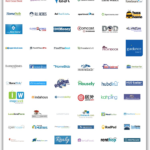As the owner of your own business, you know how important it is to get your brand and message out to as many people as possible. However, with so many competing businesses in your industry, how can you ensure that you get the right kind of attention.
Well, as you may have guessed, search engine optimization (SEO) and social media marketing can be invaluable tools in promoting your company and its products or services. And while they might sound very similar, each one serves a different purpose when it comes to the overall marketing strategy of your business. Let’s take a look at how these strategies can help you out.
Choose your platform
Don’t limit yourself to one platform when it comes to marketing your business. While SEO and social media sites like Facebook and Twitter are free ways to reach potential customers, they aren’t necessarily your only options.
For example, consider putting up a billboard or going on local radio these forms of advertising can be very affordable if you have a small budget.
Just because a service is cheap doesn’t mean it isn’t worth using, so look for low-cost alternatives whenever possible; I recommend checking out Craigslist and local newspapers for opportunities that may arise in your area.
Choose your content
While there are all sorts of different ways to go about promoting your business, it’s important to know that you don’t need to be a social media guru with a massive following on Twitter and Facebook.
In fact, some business owners who have started their own companies later complain that they wish they had chosen more professional services in order to market their company services like SEO and Social Media marketing.
While these services do take time, they can help you establish connections and increase traffic over time, which leads to increased revenue. If you aren’t sure what option is best for your business model, reach out to some professionals; they will be able to walk you through some options based on your goals.
Schedule your posts
Whether you have a busy schedule or not, it’s important to stick to a posting schedule. Scheduling your posts ahead of time helps you avoid last-minute pressure to publish and spreads out your updates over an extended period.
You don’t want new followers scrolling through your feed only to find that you only published once in a blue moon this can give your page an abandoned feel and deter potential customers from following.
If you find yourself with extra time, use Hootsuite’s or Buffer’s advanced features such as hashtags, keywords, location targeting and geotargeting to maximize reach for minimal effort.
Measure your results
Measurement is extremely important when it comes to social media marketing. Luckily, analytics software such as Google Analytics or even simple share buttons will give you valuable information about how people are interacting with your content.
These stats are invaluable and provide a look into what types of content are actually driving people to your website and engaging them with your brand. If it isn’t working, don’t be afraid to try something new! It’s important to keep an open mind if you want to improve as a marketer.
Look at competitor social media accounts
The Highest Paying Jobs in America
The first step in developing a social media marketing plan is getting an idea of what’s already out there. In terms of their content, how often they post, and to which social networks, are some of the things you’ll want to investigate.
The goal isn’t necessarily to clone your competitors; rather, it’s to understand who they’re trying to reach and get a sense of what resonates with that target audience. Armed with that info, you can develop different plans for each platform you use–for example, one strategy might call for more posts on Facebook while another might focus on creating exciting videos for YouTube.
Write entertaining updates
While you’re updating your social media profiles, don’t forget to also include a couple of extra tidbits. Share inside jokes and personal details that will help humanize your brand. For example, say you manage a company that sells bird feeders; if one of your employees just had a baby, brag about it on social media.
The more interesting and personal your updates are, the more likely people are to read them and engage with them—not only boosting traffic but also adding value to their experience when they do land on your website. If you can build trust and rapport with followers, they’ll be much more likely to take action when you ask them to (e.g., click through to your site or call your office).
Advertise your account on other platforms
You’ve just created a Facebook page for your business, but that’s no reason to stop there. If you have an Amazon account, or run an Etsy shop, there are a variety of ways you can advertise your Facebook presence on those platforms to gain new followers and promote your brand.
For example, if you sell books on Amazon, you can create sponsored ads that display when customers are looking at similar products. Or if you use Etsy’s paid advertising service (which it offers businesses), your posts will appear in people’s activity feeds as they browse their favorite shops. The point is, don’t limit yourself to one platform—if you can build up your presence on multiple social media sites, do so!










